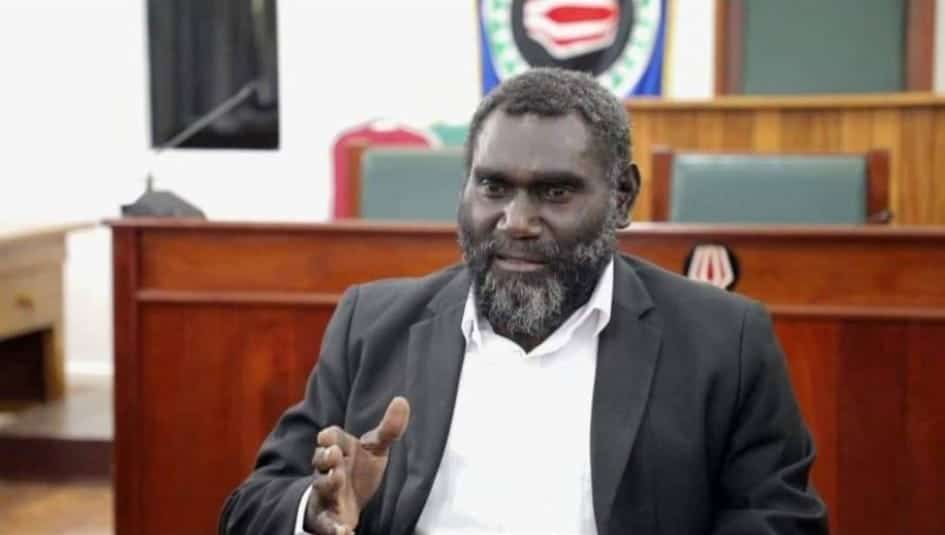A South Pacific island central to Australia’s regional stability has urged the Albanese government to support its quest for independence as China ramps up its influence in the area.
In an interview with Sydney Morning Herald, the president of Bougainville – an autonomous region that forms part of Papua New Guinea – has called for Australia to help its push for self-determination, in line with the longstanding will of its citizens.
“This is about the people’s wishes for independence. We need progress,” Ishmael Toroama, the president of the Autonomous Region of Bougainville, said during a recent visit to Washington to meet members of Congress and the Biden administration.
The push comes four years after an independence referendum was supported by almost 98 per cent of Bougainvilleans, and amid global concerns about China’s encroachment on Pacific nations such as the neighbouring Solomon Islands, which recently signed a security pact with Beijing that sent shockwaves through the White House.
But it also opens up a potential regional flashpoint for Australia, which has spent decades trying to delicately balance relations between PNG and Bougainville, regions that were once engaged in a vicious civil war and are now crucial to the Indo-Pacific’s future security and stability.
Toroama and PNG Prime Minister James Marape have both agreed to a timeline that would see PNG ratify Bougainville’s independence “no earlier than 2025 and no later than 2027,” the president said.
Asked for the Albanese government’s view, a spokesman for the Department of Foreign Affairs and Trade(DFAT) said: “Australia’s long-standing position is that Bougainville’s future political status is a matter for the Papua New Guinea and Autonomous Bougainville governments to resolve.”
However, tensions reignited earlier this month, when Albanese was asked about his position while signing a new pact that will promote dialogue between the two countries above other partners, and also provide a multimillion-dollar funding boost for law and order and other initiatives.
“I respect PNG’s sovereignty and those issues are a matter for Papua New Guinea,” Albanese said standing alongside Marape, prompting claims from Bougainville that Australia was not doing enough to hold PNG to account over the delays.
This followed an earlier diplomatic stoush involving Deputy Prime Minister Richard Marles, who declared in a press conference in 2022 that it was Australia’s job to “support the prime minister and the government of Papua New Guinea in the decisions that it makes in respect of the future of Bougainville, and we stand ready to do that.”
Marles’ comments also prompted a backlash at the time, resulting in the minister later issuing a more neutral statement, effectively walking back his comments.
Situated in Melanesia, about 3000 kilometres from Australia, Bougainville is also home to the now idle Panguna Mine, which was once the largest and most profitable copper and gold mines in the world. When PNG wanted to become a free-standing country in 1975, Australia gave its substantial ownership interest in the Panguna Mine to PNG to help pay for the cost of independence.
Following tensions over environmental damage in Bougainville and inequitable land compensation and mine royalties, civil war erupted between the Bougainville Revolutionary Army (BRA) and the PNG Defence Force.
Toroama, a former commander of the BRA, said if the mine reopened it could help fund Bougainville’s independence. Some industry sources believe the mine could cost about US$3 billion to US$4 billion to reconstruct, but contains an estimated US$100 billion in ore within its walls.
“We ourselves must fund our independence but of course, we need support in terms of the partners that we try to work with,” he said.
“There are a lot of potential investors: we have the Australians, they come and go, and the Chinese investors also, but we have to progress the consultation between the landowners and the government before we can resolve that issue.”
Toroama said the purpose of his trip to Washington was to let Americans know they have an ally in a strategic region of the South Pacific – but one that is in need of their help.
Asked if Bougainville would be willing to partner with China, he replied: “It depends on how the leadership in Bougainville frames the way moving forward.”
Fears of a China-funded independent Bougainville would raise considerable concern in the U.S, which has moved to ramp up its efforts in the Indo-Pacific in a bid to counter Beijing’s influence.
SOURCE: SMH/PACNEWS














